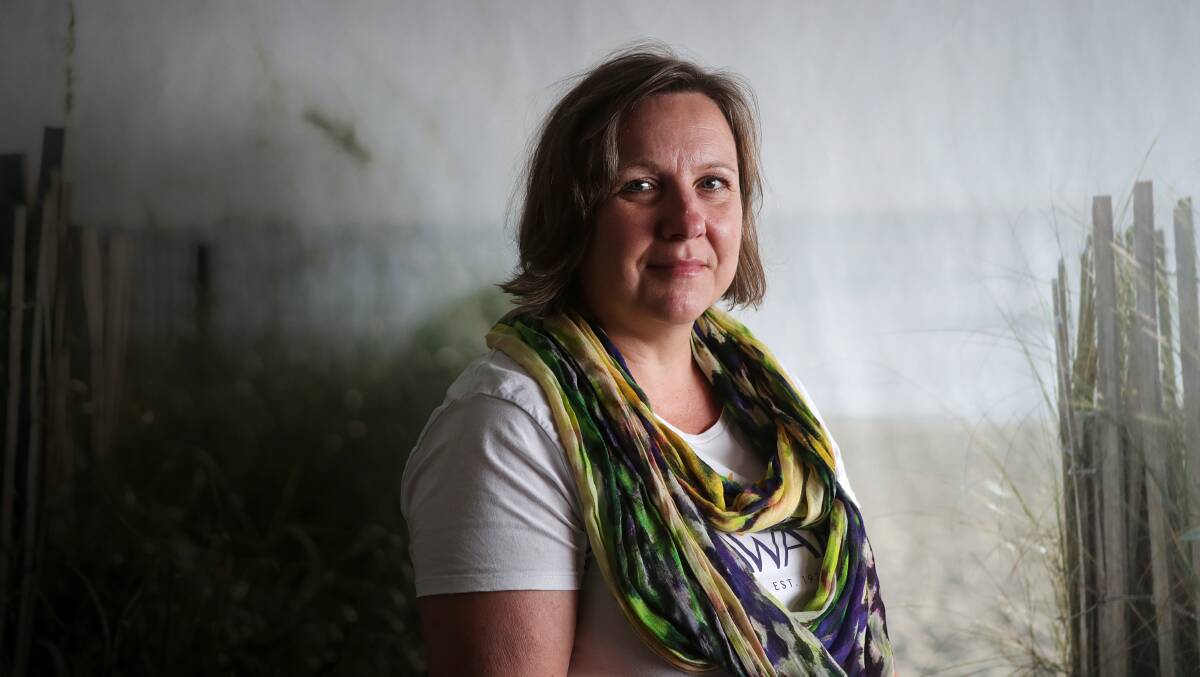
For sports lovers, this year's October long weekend brought a bonanza with both the NRL and AFL grand finals taking place.
Subscribe now for unlimited access.
$0/
(min cost $0)
or signup to continue reading
But major sport events herald an increase in domestic violence, and the confluence of two grand finals saw just one service, Women Illawarra, experience a 50.8 per cent increase in referrals from police on the same weekend in 2022.
"That's alarming to me," the service's general manager Michelle Glasgow said.
She noted this figure only represented the women who had reported incidents to police; more likely went to other services, or remained silent.
No to Violence works with men who use family violence and has previously run a campaign around the AFL grand final urging sporting clubs to promote the Men's Referral Service, which helps men change violent behaviour.
Its chief executive officer, Phillip Ripper, said the link between family violence and major sporting events was complex.
"We know that violence against women has distinct gendered drivers. We also know that some sport environments can promote harmful gender stereotypes and cultures of masculinity that emphasise aggression, dominance and control," Mr Ripper said.
"The culture of a sporting event can be a contributing factor to family violence. Sporting events which are emotionally charged and promote aggression are likely to lead to increased rates of family violence."
Gambling and alcohol use did not cause domestic violence, he said, but both were risk factors for increased severity of such violence and strongly associated with sporting events.
"More research is needed to understand the relationship between family violence and sporting events, and how best to intervene to prevent this violence," Mr Ripper said.
What role sportspeople and professional clubs should play
Prominent sportspeople have the kind of influence that can drive change when it comes to gender inequality and gender-based violence.
"Male athletes can use their positions to challenge disrespect of women and tackle violence against women. Young people often look up to sporting heroes who can promote healthy masculinity for men and boys," Mr Ripper said.
"Unfortunately, we have often seen the opposite of this, with sexual and family violence perpetrated by high-profile male athletes."
He said clubs also needed to ensure their high-profile male athletes were held accountable when they committed violence against women.
"Failure to act sends a dangerous message to fans and broader community that this sort of behaviour is acceptable," Mr Ripper said.
What the community can do
Mr Ripper said community sports clubs were in a good position to act, but needed more resourcing and support to do so.
"Clubs have an important role to play in educating men and boys about healthy masculinity, respectful relationships and gender equality. Clubs should take action to embed diversity and inclusion," he said.
However, many clubs relied on volunteers, whom Mr Ripper said might lack the necessary skills and resources.
"Governments can make a huge difference by stepping in and helping clubs out with ideas and resources to prevent and respond to family violence effectively," Mr Ripper said.
Women Illawarra general manager Michelle Glasgow said gendered violence was not a women's issue, but a whole of community issue.
Mr Ripper said ending violence was the responsibility of everyone, from government and business to individuals among their friends and family.
"Communities should engage in conversations about gender equality and challenge attitudes and social norms that normalise male control over decision-making in public life and in relationships," he said.
"Everyone can learn more about the issue of family violence and its drivers, and call for actions to address it in their workplaces, schools, sporting clubs and other community spaces."
Ms Glasgow said it was important that men in particular stepped up, recognising that many were horrified by the level of gendered violence.
"How do we educate men around their responsibilities?" she said.
"Not just to be safe partners and safe fathers and safe sons, but to be allies in the community and not bystanders, to be able to step up and say actually some of the behaviours that go along with these events are not acceptable to our community anymore."
- Support is available from 1800RESPECT on 1800 737 732. The Men's Referral Service supports men to change violent behaviour and can be reached on 1300 766 491. If someone is in immediate danger, call 000.
Reading this on mobile web? Download our news app. It's faster, easier to read and we'll send you alerts for breaking news as it happens. Download in the Apple Store or Google Play.


